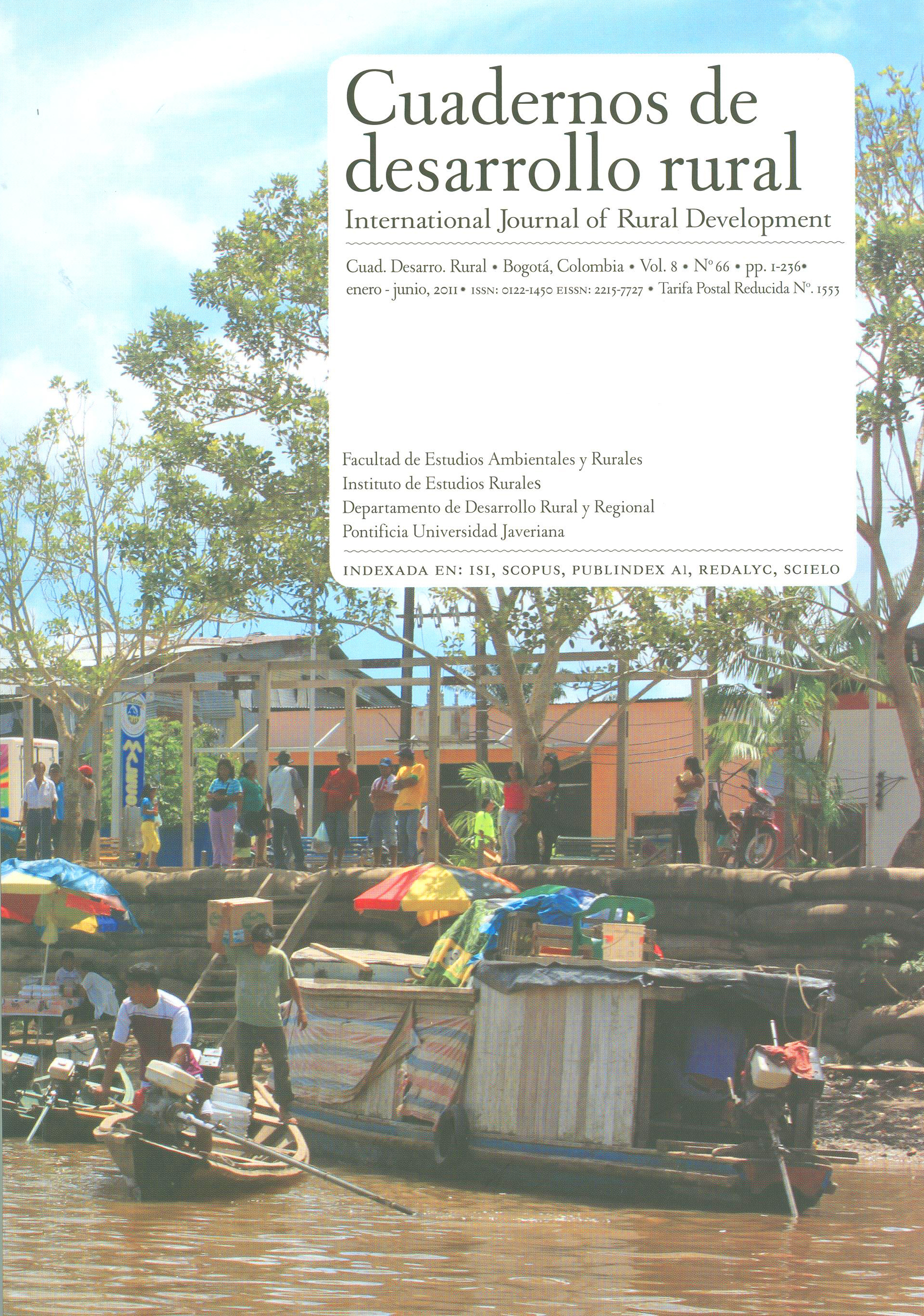Resumo
En la actualidad, una parte importante de nuestra sociedad, vive excluida del acceso a los servicios públicosdomiciliarios; adicionalmente, los proyectos que pueden contar con recursos para ser implementadosen las comunidades pequeñas, rurales, o en localidades donde viven etnias, la mayoría de las vecesson desperdiciados, siendo víctimas de metodologías de implementación equívocas que pretenden unaapropiación mediante la gestión comunitaria participativa malinterpretada.
La comunidad Ticuna delResguardo Nazareth, en el Amazonas, es protagonista de un proceso de implementación de tecnologíasde saneamiento básico, que ha logrado romper con los esquemas populares y lograr una verdaderaapropiación teniendo en cuenta las representaciones sociales que sus integrantes se hacen frente a lastecnologías y frente a los cuestionamientos más básicos de detección de necesidades básicas frente a sucultura y costumbres. De esta experiencia y del análisis de expertos de diferentes áreas del conocimiento,surge una metodología que pretende involucrar todas las variables tanto humanas, como ambientales, técnicas, sociales, económicas, políticas y estratégicas, en torno a los proyectos de saneamientobásico en comunidades indígenas.
Propriedade intelectual:
Instituto de Estudios Rurales, Facultad de Estudios Ambientales y Rurales, Pontificia Universidad Javeriana, Bogotá, Colombia.
O envio de um artigo para a revista Cuadernos de Desarrollo Rural, indica que o(s) autor(es) certifica(m) e aceita(m):
- Que ele não tem sido publicado, nem aceito para publicação em outra revista.
- Que, no caso de sua publicação for aceita, se o artigo ter uma versão previa como working paper (literatura cinza) ou aparecer numa site da internet, deverá ser retirado dele, ficando somente o título, resumo, palavras-chave e hipervinculo à revista.
- Que uma vez publicado em Cuadernos de Desarrollo Rural não será publicado em outra revista.
Ao enviar artigos para avaliação, o(s) autor(es) aceita(m) transferir(em) os direitos de autor à revista Cuadernos de Desarrollo Rural, para os efeitos da sua publicação na versão impressa ou eletrônica, mesmo firmará a licença de uso parcial anexa.
Responsabilidade de conteúdos:
O conteúdo dos artigos publicados por Cuadernos de Desarrollo Rural é de exclusiva responsabilidade do(s) autor(es) e não necessariamente reflete o pensamento do comitê editorial e científico da revista Cuadernos de Desarrollo Rural. Os textos podem se reproduzir total ou parcialmente, mas citando a fonte.
A publicação opera de acordo com a Creative Commons Attribution License (CC), "Alguns direitos reservados". Para as licenças CC, o princípio é o da liberdade criativa. Este sistema não se opõe aos direitos autorais, mas complementa-se com eles. Somos conscientes da importância dos direitos de autor na nossa cultura.
Creative Commons oferece um sistema que automatiza a pesquisa de conteúdos "comuns" ou sob licença CC. Assim, ao licenciar o seu trabalho, o criador estabelece as condições gerais que são digitalmente incorporadas nele, para que um motor de busca possa identificá-las e escolher a mais conveniente.
This work is licensed under a Creative Commons Attribution-NonCommercial-ShareAlike 3.0 Unported License.


